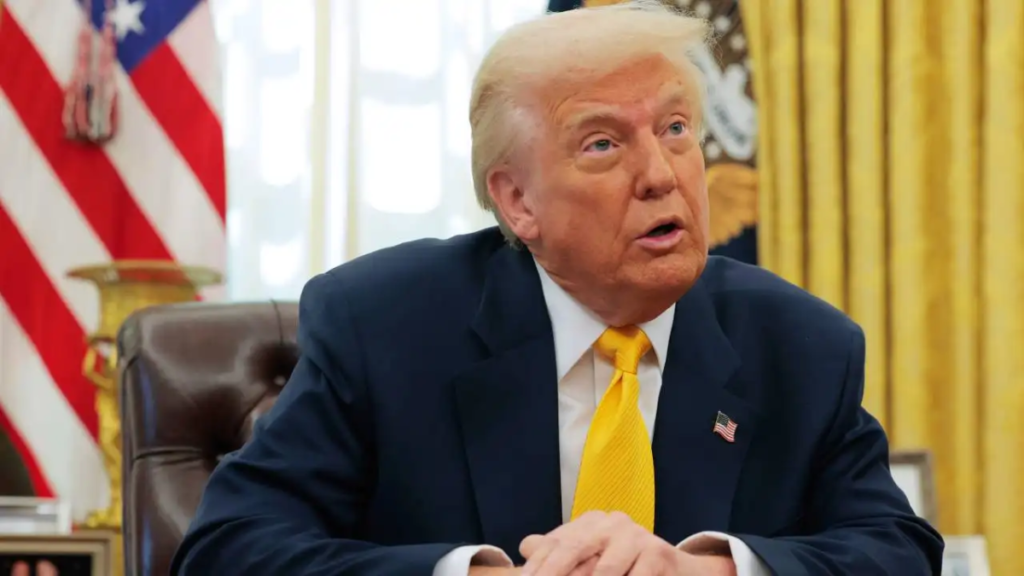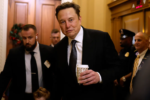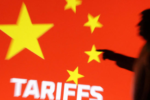A new analysis from global financial services giant Allianz suggests that former President Donald Trump’s proposed tariff policies—particularly those targeting Chinese imports—could lead to higher unemployment rates in the U.S., even if they don’t spark widespread job losses across all sectors.
The forecast comes amid renewed political debate over Trump’s economic agenda as he positions himself for a potential return to the White House in 2025.
Allianz’s economic experts estimate that a significant increase in tariffs, especially the 60% blanket tariff Trump has floated on Chinese goods, could disrupt global supply chains, drive up prices, and cool business hiring.
While mass layoffs may not occur immediately, the overall labor market could experience stress in the form of slower job creation and increased unemployment.
The Impact of Broad-Based Tariffs on the U.S. Economy
Trump’s tariff proposals aim to reduce the U.S. trade deficit and bring manufacturing jobs back to American soil. However, economists from Allianz and other institutions warn that such measures are more likely to increase the cost of doing business for U.S. companies, particularly those reliant on international supply chains.
“While the idea of economic decoupling from China plays well politically, the reality is that many American businesses depend on affordable imports to remain competitive,” said Allianz Chief Economist Ludovic Subran.
Tariffs act as a tax on imports. When imposed at a high level across a wide range of products, they can lead to inflationary pressures as costs are passed onto consumers and businesses alike. This could result in a dip in demand, cautious business investment, and slower job creation.
According to a recent report by Allianz, if Trump’s tariffs are enacted, the U.S. could see unemployment increase by as much as 0.6 percentage points over the next year, equivalent to hundreds of thousands of jobs not being created.
Job Market Resilience Could Soften Blow
Despite the projected increase in unemployment, Allianz doesn’t foresee widespread layoffs as the most likely outcome. Instead, the U.S. labor market is expected to respond with hiring freezes and slower expansion rather than abrupt job cuts.
The resilience of the U.S. economy and continued consumer spending could help buffer against more serious employment losses. Sectors that are less exposed to global trade—such as health care, education, and domestic services—are likely to remain stable.
Still, industries with higher exposure to imports—particularly retail, electronics, and auto manufacturing—could feel pressure, not just from higher input costs but also from retaliatory trade measures imposed by foreign governments.
Political and Market Reactions to Trump’s Trade Rhetoric
The Allianz report comes as Trump continues to campaign on a platform of economic nationalism, using tariffs as a tool to combat what he describes as unfair trade practices by China and other countries. He’s floated not only a 60% tariff on Chinese goods but also a universal 10% tariff on all imports.
Market analysts have expressed concern over the inflationary impact of these proposals, particularly as the Federal Reserve tries to bring inflation back to its 2% target without derailing growth. Allianz’s findings align with broader Wall Street sentiment that tariffs may compromise economic stability in the medium term.
Federal Reserve Chair Jerome Powell has not directly addressed Trump’s tariffs but has emphasized the importance of supply chain stability and price control in maintaining a healthy labor market.

Global Trade Partners May Retaliate
Economists also warn of the risk of retaliatory tariffs from China and other trading partners if Trump’s proposals are implemented. Such retaliation could limit U.S. export opportunities and further dampen job growth in export-heavy industries such as agriculture and aerospace.
During Trump’s first term, retaliatory tariffs hit American farmers hard, prompting billions in federal subsidies to offset the losses. A repeat scenario could strain government finances and provoke renewed tensions within sectors already facing labor shortages and margin compression.
The Bigger Picture: Election-Year Economics
Trump’s tariff proposals are central to his 2024 campaign messaging, focused on “America First” economic policies. Supporters argue that aggressive tariffs are necessary to restore U.S. manufacturing dominance and reduce dependence on China. Critics, including many economists, say the approach risks undermining long-term economic growth.
Allianz’s forecast serves as a cautionary tale: while aggressive trade policy may boost nationalist sentiment, it could also have unintended consequences for the broader economy. With inflation still a pressing concern and global supply chains far from fully recovered post-COVID, the U.S. may find it harder than expected to absorb a new wave of trade restrictions.
Conclusion: Balancing Trade Protection with Economic Stability
Trump’s proposed tariff strategy may appeal to voters worried about overseas competition and manufacturing decline, but analysts caution that the economic trade-offs could be significant.
Allianz’s warning of increased unemployment—even without mass layoffs—adds nuance to the debate and suggests that protectionist policies could ultimately slow the U.S. recovery and complicate efforts to stabilize the labor market.
As election season heats up, the future of U.S. trade policy remains a key battleground issue, with lasting implications for jobs, inflation, and economic resilience.
For more details, read the full Allianz analysis on U.S. tariffs and unemployment.
Disclaimer – Our team has carefully fact-checked this article to make sure it’s accurate and free from any misinformation. We’re dedicated to keeping our content honest and reliable for our readers.








